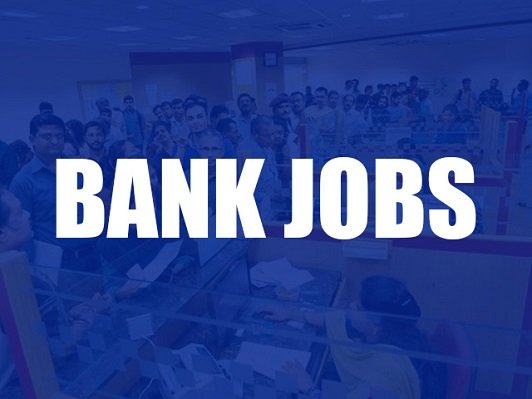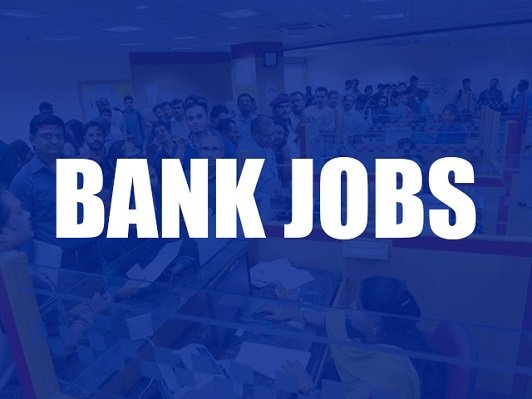Introduction
A bank job is one of the most sought-after careers worldwide, offering job security, competitive salaries, and growth opportunities. Whether you’re a fresh graduate or an experienced professional looking to switch careers, working in a bank can be a rewarding choice. This article will guide you through everything you need to know about securing a bank job, including eligibility criteria, necessary skills, and career advancement opportunities.

Why Choose a Bank Job?
There are several reasons why many individuals aspire to work in the banking sector:
- Job Stability: Banks offer long-term career security and benefits.
- Attractive Salary Packages: Banking jobs are well-paying and come with perks such as bonuses and health benefits.
- Career Growth Opportunities: Employees can climb the corporate ladder through promotions and specialized training programs.
- Diverse Career Options: From customer service to investment banking, there are numerous roles in the banking sector.
- Work-Life Balance: Unlike many other industries, banks offer structured work schedules.
Types of Bank Jobs
The banking sector offers a variety of job roles depending on qualifications, skills, and experience levels. Here are some common bank job positions:
1. Entry-Level Bank Jobs
- Bank Teller Job: Handles customer transactions, deposits, withdrawals, and account inquiries.
- Customer Service Representative: Assists customers with banking products and services.
- Clerk: Manages administrative tasks, maintains records, and processes documents.
2. Mid-Level Bank Jobs
- Loan Officer: Evaluates loan applications and helps clients with loan approvals.
- Credit Analyst: Analyzes credit data to assess borrowers’ creditworthiness.
- Relationship Manager: Manages client portfolios and builds strong customer relationships.
3. Senior-Level and Specialist Bank Jobs
- Branch Manager: Oversees branch operations, customer service, and business growth.
- Investment Banker: Works with corporations on financial strategies, mergers, and acquisitions.
- Risk Manager: Identifies and mitigates financial risks for the bank.
- Financial analysts evaluate financial information to inform investment choices.
Eligibility Criteria for a Bank Job
The eligibility criteria for a bank job depend on the role and institution, but generally include:
- Educational Qualifications:
- A bachelor’s degree in Finance, Accounting, Economics, or Business Administration is preferred.
- An MBA or additional certifications (such as CFA, CPA) can be advantageous for high-level roles.
- Age Limit: Most banks have a minimum age requirement of 18 years and a maximum age limit of around 30–35 years for entry-level positions.
- Basic Computer Knowledge: Proficiency in MS Office and banking software is essential.
- Communication Skills: Good verbal and written communication skills are necessary for customer interaction.
- Aptitude for Numbers: Strong analytical and mathematical skills are crucial for banking operations.
- Certifications (Optional): Some banks require certification in financial planning, risk management, or accounting.
How to Apply for a Bank Job?
1. Prepare Your Resume
Create a well-structured resume highlighting:
- Educational qualifications
- Relevant experience (if any)
- Skills such as customer service, financial analysis, or risk assessment
- Certifications and achievements
2. Look for Bank Employment Opportunities
Check bank websites, job portals, and government recruitment exams for available positions. Some popular banking exams include:
- IBPS (Institute of Banking Personnel Selection) Exam
- Examination for the State Bank of India Probationary Officer (SBI PO)
- RBI Grade B Officer Exam
- Private Bank Recruitment Exams
3. Prepare for the Bank Exam and Interview
Bank recruitment exams typically test candidates on:
- Quantitative Aptitude
- Logical Reasoning
- General Awareness
- English Language
- Computer Knowledge
After passing the exam, shortlisted candidates must go through an interview process where they are assessed on their knowledge, problem-solving skills, and communication abilities.
Essential Skills for a Successful Bank Job
To succeed in a bank job, one must develop the following skills:
- Financial Knowledge: Understanding banking operations, financial regulations, and market trends.
- Customer Service: Strong interpersonal skills to assist and retain customers.
- Problem-Solving Ability: Quick decision-making skills to resolve customer and operational issues.
- Attention to Detail: Accuracy in handling financial transactions and documents.
- Technical Skills: Familiarity with banking software, financial tools, and cybersecurity basics.
- Time Management: Ability to multitask and manage workload efficiently.
Career Growth in Banking Sector
A bank job provides several career advancement opportunities through promotions, training, and experience. Below is a typical career path in the banking sector:
- Entry-Level Positions (0–2 years): Clerk, Teller, Customer Service Representative
- Mid-Level Positions (3–7 years): Loan Officer, Credit Analyst, Relationship Manager
- Senior-Level Positions (8–15 years): Branch Manager, Investment Banker, Financial Analyst
- Top-Level Positions (15+ years): Regional Manager, Chief Financial Officer (CFO), Director of Banking Operations
To progress in the banking sector, professionals can:
- Take advanced certifications like CFA (Chartered Financial Analyst) or CPA (Certified Public Accountant).
- Gain experience in specialized banking sectors like investment banking or risk management.
- Apply for internal promotions and leadership development programs.
Challenges in a Bank Job
While a bank job is rewarding, it also comes with challenges such as:
- High Work Pressure: Meeting targets and deadlines can be stressful.
- Customer Handling Issues: Managing difficult customers requires patience and communication skills.
- Frequent Regulatory Changes: Banks must constantly adapt to new policies and compliance requirements.
- Long Working Hours: Some banking roles may require extended work hours, especially in private banks.
Conclusion
A bank job is a prestigious and stable career option that offers financial security, career growth, and learning opportunities. By meeting the necessary eligibility criteria, honing essential skills, and preparing for bank exams, you can successfully land a job in the banking sector. Whether you’re aiming for a customer service role or a high-level financial analyst position, the banking industry provides a structured career path with significant growth potential. If you’re looking for a World Bank job or other banking employment opportunities, start your journey today and take the first step toward a fulfilling career in banking!





